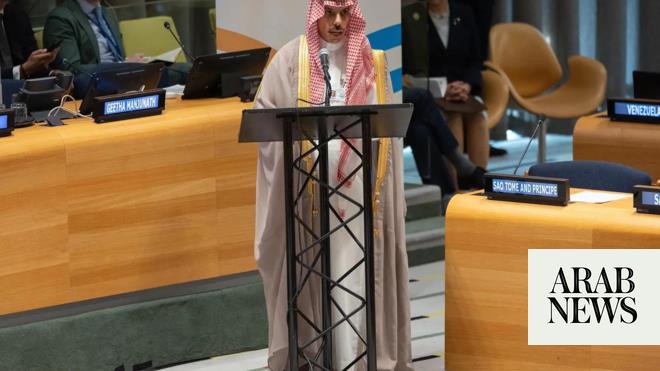
No discussion today prevails over the Chinese mediation and the Saudi-Iranian dialogue. There are many approaches, as well as many outstanding questions and debates about the move, even in Western discourses.
As I am currently attending a conference in Berlin, I am repeatedly asked about what is happening, and the answer remains the same: Nothing but recurring Saudi successes, as the Kingdom believes in constants and foundations, the most important of which is that the future lies in the logic of the State.
China is indeed credited with this brave step, by devoting its economic presence to a crucial political mediation. But Beijing’s influence and role are not something new.
Many years ago, I attended a mini-workshop in Paris, which focused on “the Sinicization of the World,” based on the expectation of a growing influence for China and the establishment of a slow and deliberate long-term strategy to extend soft power, with economic leverage and an amazing ability to fill Western vacuums in the developing world and the Middle East region.
This forecast was also based on the decline of the presence of the United States, as its role could be defined as the world’s virtual policeman, through its coercive policies, economic sanctions, and pressure through human rights files.
The Chinese presence, in its new version, highlighted keenness on economic partnerships and soft power, clearly avoiding any sovereign interference in the affairs of states. This gave it a factor of political attraction and added value to the major triumphs at the level of artificial intelligence and technology, thus allowing it to benefit from digital achievements to strengthen the centralization and stability of the state.
This has turned Western research centers and think tanks into a beehive, trying to dedicate many of their analyzes and papers to the Chinese giant, especially with China’s influence in the Middle East region through sustainable investments linked to the Belt and Road Initiative.
Economic influence in today’s world is the first weapon of choice for powerful countries. Therefore, we see that despite all major threats to the security of the Gulf and its States, Saudi Arabia is proceeding vigorously in the implementation of economic projects, while strengthening defense lines and projects of national security and deterrence, without slipping into short-term reactions.
The Gulf States and Saudi Arabia constitute the most important and fastest-growing markets, especially after the waves and winds of the Arab Spring that undermined the stability of many countries in the region. Estimates indicate that huge opportunities await these states, with the reliance on emerging artificial intelligence technologies.
This is what Saudi Arabia has embarked on since the launching of its ambitious Vision 2030 and its national outputs, overcoming the repercussions of major crises, especially after the Covid-19 pandemic, during which the Kingdom presented a promising model by harnessing technology to provide remote logistical services, and before that its massive digital transformation at the level of governance.
Despite the challenges, the Kingdom looks forward to establishing major economic markets at the level of artificial intelligence, digitization, and leadership in the Middle East, especially in the field of infrastructure, smart logistics and renewable energy, in addition to the military fields and the localization of military production.
China’s ambitious pursuit to fill the vacuum in the Middle East, Africa and the developing world is basically part of its project to redraw the global economic geopolitical map.
Beijing’s endeavor is free of political, human rights, or moral claims, which Western propaganda used to promote to channel its projects over the past decades, especially after the state of retreat and exposure in dealing with areas of tension in the world and the double standards that are based on purely economic considerations.
But what about the successes of Saudi Arabia, which represent the most important part of the discussions currently taking place! It is not possible to talk about any dialogue, except according to the “logic of the state”, which Saudi Arabia, along with the countries of moderation, promoted as a basic strategy. This means the waning of many of the misadventures that used to cause tension in the region, including the rise of militias.
Today, with the presence of the sane state and its logic, the culture and authority of the militia - which was a de facto situation in a large part of the Arab and Islamic world - will decline, especially in countries that experienced what was known as the “Arab Spring” and the subsequent shattering of central authorities, starting with the collapse of the central state’s authority, and leading to the disintegration of a number of military and religious institutions and their failure to control the public and societal space.
The logic of the militia that prevailed in the region, and is expected to be contained in the ongoing dialogues, represented the greatest threat to the modern state, as it is a counter logic, but not a superficial concept, as is the case with armed groups, which exploit politics to establish their extremist ideology, and therefore have no political ambition. Those can be moved, penetrated, directed, provoked, and their reaction can be easily predicted, especially by well-established intelligence services.
The political vacuum, which is mainly blamed on the international community, as well as the United States, because of its ability to influence and mobilize an international political decision - is what creates the spring of militias, and transforms social components into armed groups with a manipulating force.
Saudi Arabia’s success today is primarily embodied in preserving the state component, which is a very difficult task that requires an internal strategy and foundations in foreign policy, in addition to international understanding and support. At the same time, it requires a good reading of the political components, especially the opposition, to understand what will happen if the state collapses.
This understanding is indeed absent in many post-Arab Spring nations. But this lack is the most dangerous in countries that have totally collapsed and were prey to militias and terrorist groups, with the political support by states that remain far from the logic of the state.
Dialogue is a giant and excellent first step. However, we must be reasonable in our expectations, as stated by the Saudi foreign minister. He said that the desire for the dialogue alone does not mean solving all outstanding differences between the two countries.
China is deploying a serious effort to promote coexistence and security in our region and good neighborly relations between countries. Here lies the importance of its role, as other previous approaches were not based on sponsorship, but rather an attempt to exploit the gap between two worlds: a militia world, and a rational Saudi Arabia that insists on two constants that go hand in hand: the logic of the state and the welfare of the future.










